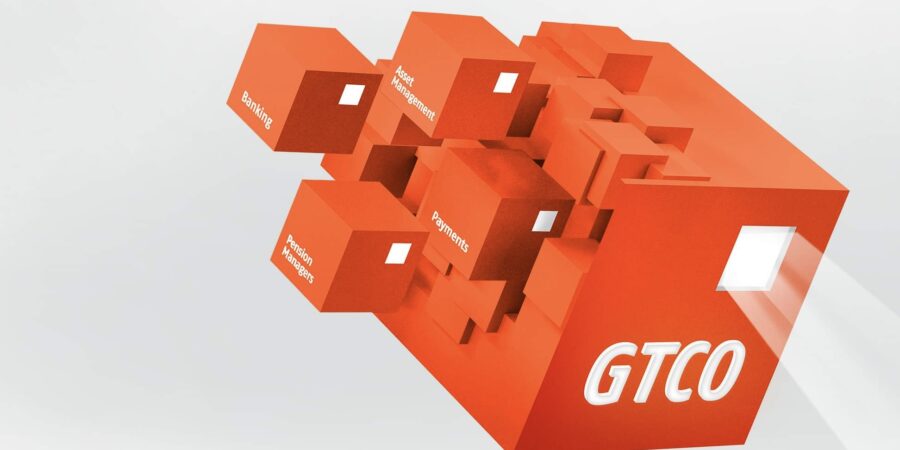In July 2021, Guaranty Trust Bank Plc, one of Nigeria’s foremost lenders, made a corporate reorganization into GTCO, a holding company. This reorganization meant the company would start offering services beyond banking, such as payment service solutions.
Now GTCO has released its full-year financial statements for 2022, marking its first anniversary as a holding company. The report showed that its focus on expanding these non-banking offerings has not changed. And in line with this strategy, it has acquired Investment One Funds Management Limited and Investment One Pension Managers Limited.
Investment One, a financial and capital management firm, was initially incorporated as part of Guaranty Trust Bank.
Before 2012 Guaranty Trust Bank provided several non-banking services, including GTB Asset Management for capital market services and GT Assurance for insurance. However, a 2010 regulation by the Central Bank of Nigeria (CBN) compelled banks to either divest non-core lending services or restructure as a holdings company, prohibiting them from operating non-banking subsidiaries.
So, Guaranty Trust Bank chose to comply with the regulation by selling its subsidiary, GTB Asset Management, which currently operates under the name, Investment One. But now that it has a holding company structure, Investment One is returning to the GTB family. Investment One will operate under the new name of Guaranty Trust Fund Managers Limited (GTFM), while Guaranty Trust Pension Managers Limited (GTPM) will cater to Nigerians’ pension needs.
Taking on fintechs
One notable detail about GTCO’s return into the wealth management space is its digital-first approach. It will compete directly with fintech startups like Trove, Chaka, Bamboo, and Risevest. But it’s not the company’s first foot in the water. On June 1st last year, GTCO launched Squad, a payment platform, through HabariPay —its fintech arm— to square up with fintech firms like Flutterwave and Paystack.
But before the launch of Squad or even HabariPay, GTCO’s ambition to delve into fintech was not a secret. Segun Agbaje, the company’s CEO, had been vocal about this dream for four years before launching Squad. “About 10 years ago, we made a decision then looking at the operating environment, that we were going to shed all our subsidiaries and become completely bank-focused,” he told analysts during an earnings call in 2020. “Everything we have seen over the last 2, 3 years, has told us that it’s time to have a bit of a rethink.”
GTCO’s desire to pivot to fintech is partly driven by the seemingly plateaued growth of traditional banks. “Most banks are growing 5% to 7%. We don’t think that’s sustainable,” Agbaje told analysts. The company’s financials prove his point. GTCO’s profit after tax (PAT) dipped to a four-year low last year and has struggled to keep an upward profit trajectory in recent years.

Meanwhile, it has always posted impressive numbers with payment services. HabariPay, for instance, recorded N689 million profit before tax within six months in 2022, a 75% margin.
The Achilles’ heel
From April 29th to May 1st, GTCO held its annual Food and Drink Festival, welcoming thousands of Nigerians to exhibit and explore different angles of the food industry. However, this event set the stage for an irony: GTCO’s payment services malfunctioned during the event.
gtbank getting bodied in its own festival by opay and co. is not a good looking😂😂😂
— dámiláre dòsùnmú (@tarykuh) April 30, 2023
GTB card not working on a GTB POS, GTB app also not loading to transfer to a GTB account number
…at a GTB SME event
But hey Habari processed xyz billions in just 2 months
— Philanthropist in Chief (@bigbrutha_) April 30, 2023
At GTBank’s Annual Food Festival, most transfers were done using Opay.
Can it be chalked up to Brand Love, or does that just show the average consumer’s distrust in (the) bank(s), or does it just mean that Opay has correctly plugged and owned that space?
— Uncle Evan (@promevance) May 1, 2023
This event highlights one thing: GTCO has an Achilles heel. While it has been the most aggressive traditional institution competing against fintechs in Nigeria in the last decade, reliable payments are still a problem. And that’s where fintechs and neobanks are taking charge.
Opay and PalmPay, two Chinese-owned fintechs, have become the most downloaded finance apps on Play Store. As of May 2nd, none of GTCO’s apps were in the top 20. The reason is in plain sight: fintechs like Opay and PalmPay have become more reliable, and the market is embracing them.
So, while GTCO once predicted having an “easy win” in the payment space, it won’t be a walk in the park. It has the legacy advantage, but fintechs might level the playing field by simply being more functional.





